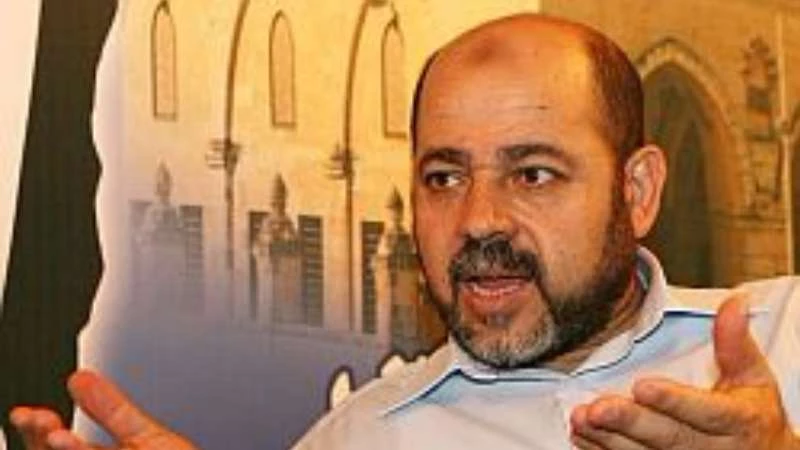He says in the call that Iran has not provided Hamas with financial support since 2009! If this claim is true, why did Hamas continue to support Iran for six years? Even the Lebanese Hezbollah would not support Iran if the regime in Tehran cut its annual support, let alone an organisation that describes itself as Sunni.
We know that it is because of its alliances with the Iranian and Assad regimes that Hamas has argued with the Palestinian Authority and most of the Gulf countries for years. Hamas has helped the Iranians in every issue including Syria at the beginning of the conflict there. After religious groups denounced its position, it declared its commitment to being neutral towards not only the ongoing slaughter of the Syrian people but also of Palestinians in the Yarmouk refugee camp and others at the hands of Iranian and Hezbollah forces and militias.
Abu Marzook accuses Iran of secrecy and is right when he does so. However, Hamas and the Muslim Brotherhood movement to which it belongs are more secretive than Iran as they conceal more than they declare. There is no doubt that the “secret leaked” telephone call is mere bait for the media and part of a campaign by the Hamas administration and its journalists directed at the capitals of Gulf countries to put pressure on them to change their positions and fund them. Two weeks ago, Hamas leaked what it described as “private” information; that its ambassador in Tehran says that Iran asked Hamas to adopt a stance against Saudi Arabia but that Hamas’ political bureau decided to refuse the Iranian request. The “leaked” news said that Iran stopped its support of Hamas because of its position on Syria! It seems that the campaign’s designers do not read their previous statements because Abu Marzook says in his “leaked” phone call that Iran stopped supporting them in 2009 whilst the political bureau says that happened as a result of Syria in 2012!
Hamas is certainly in great financial distress but that is not because Iran had stopped its funding. Rather, this is due to the Egyptian army destroying hundreds of tunnels that were a huge source of finance for many years and prevented economic activity in various forms. These measures were taken as a response to the Egyptian authorities saying that it is against Hamas’ support of armed groups in Sinai and its solidarity with the banned Muslim Brotherhood in Egypt.
In a secretive stance, Hamas says that it has taken a public stance against the Houthis. However, its sole statement on Houthis can be interpreted in many ways. Some ask what is required of Hamas – is it the severing of ties with Iran and Hezbollah?
In my opinion, it would be difficult to believe Hamas even if it said that it had severed ties with them. The statements of Hamas and its sub organisations such as the Al-Qassam Brigades vary. Also, its position on Iran is not considered important at the moment because general opinion in the Arab world is mostly against Iran, the Assad regime and Hezbollah. This villainous trio used Hamas to serve its purposes in the past. Syria hired Hamas for twenty years to balance its relations with Israel and to weaken the Palestinian Authority which has always been at odds with the Assad regime since Yasser Arafat’s time. As for Iran, it used Hamas in the south and Hezbollah in the north to put pressure on Israel to achieve its aim of bargaining with the west and today it has achieved its aim. Hamas played the role of the Trojan horse for the Iranians well.
Whether Iran has rejected Hamas for political reasons or because the price of oil no longer allows it to buy its support, the most important aspect is not Iran but the uniting of the Palestinian ranks and ending the divisions that Hamas previously caused within them. It is not in anyone’s interests in the Arab world, especially within Palestine, to have two conflicting republics. The Palestinian President Mahmoud Abbas has extended his hand and has made many concessions to end the estrangement. However, Hamas has rejected these efforts because of its links to the Palestinian Authority’s rivals.
Now the scene is very different. If the aim of Hamas’ public relations campaign is reconciliation with the Gulf by saying that it has changed, turned against Iran and Assad and now appreciates Saudi Arabia, then it is better that it reconciles with other Palestinians and returns to the authority in Ramallah and unites with it. This is more important than verbal positions that are no longer important to the Gulf States or the Syrians or the Yemenis.
Abdulrahman Al-Rashed in Asharq Al-Awasat



التعليقات (0)